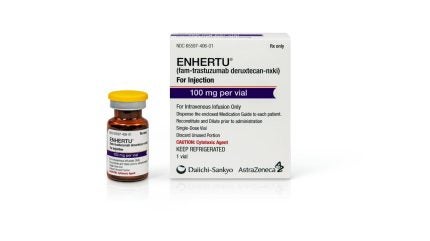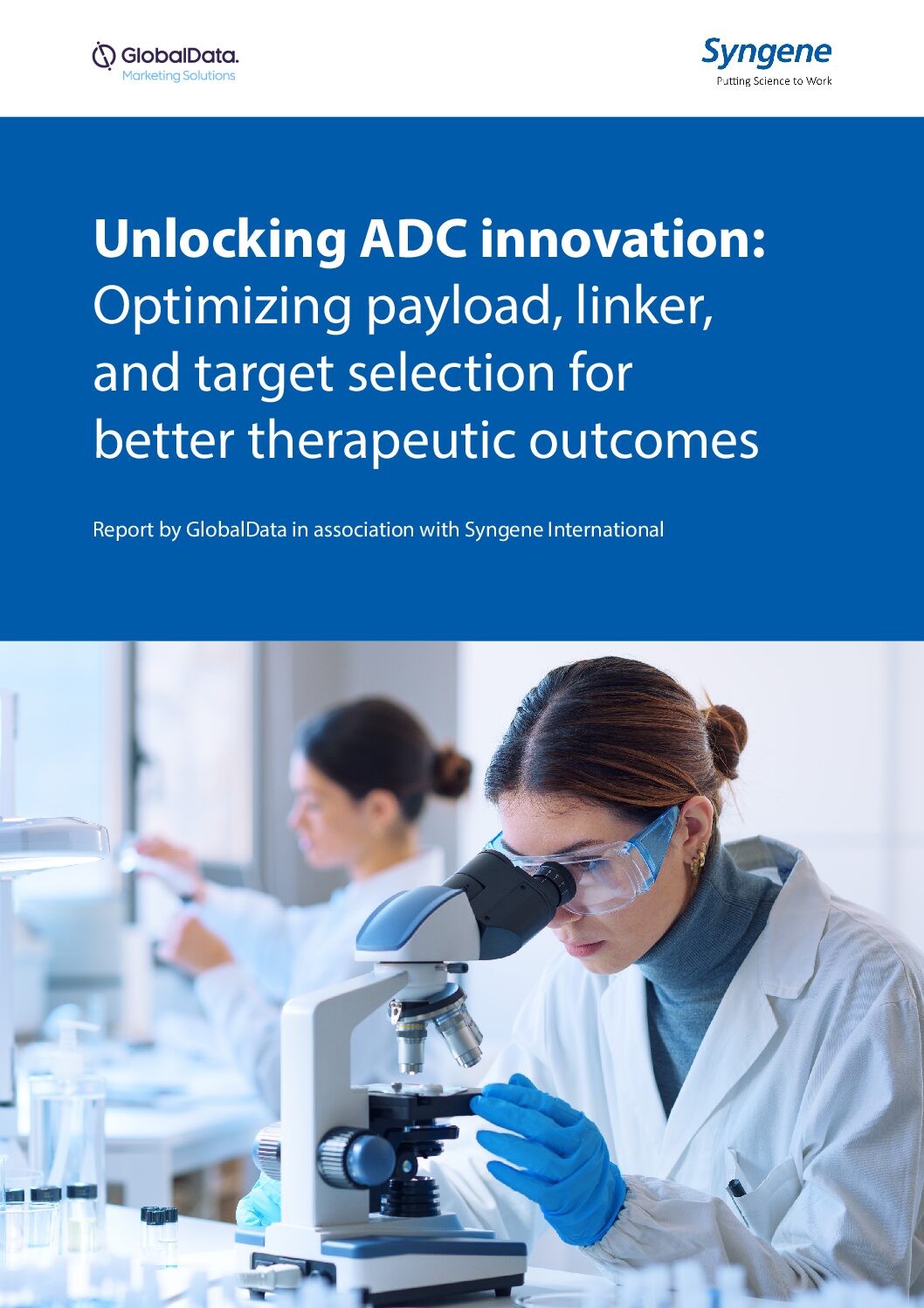

Daiichi Sankyo and AstraZeneca have received priority review from the US Food and Drug Administration (FDA) for the supplemental biologics licence application (sBLA) of Enhertu (fam-trastuzumab deruxtecan-nxki) in combination with pertuzumab.
Enhertu, a HER2-directed antibody-drug conjugate (ADC), was developed by Daiichi Sankyo and is co-commercialised with AstraZeneca.

US Tariffs are shifting - will you react or anticipate?
Don’t let policy changes catch you off guard. Stay proactive with real-time data and expert analysis.
By GlobalDataIt is already approved in 85 countries for patients with HER2-positive breast cancer.
The treatment regimen is indicated for first-line use in adults with unresectable or metastatic HER2-positive breast cancer.
Daiichi Sankyo research and development (R&D) global head Ken Takeshita stated: “Enhertu in combination with pertuzumab delayed disease progression for more than three years compared to around two years with the current standard of care as a first-line treatment for patients with HER2-positive metastatic breast cancer.
“Receiving priority review moves us closer to offering Enhertu to patients even earlier in the metastatic treatment pathway as a potential new first-line treatment option.”
The priority review follows the breakthrough therapy designation granted in July 2025, driven by results from the DESTINY-Breast09 Phase III trial.
The review aims to accelerate the evaluation of medications that may offer significant improvements.
The application is also under the real-time oncology review (RTOR) programme, which facilitates earlier access to effective cancer treatments.
The FDA’s target decision date under the Prescription Drug User Fee Act (PDUFA) is 23 January 2026.
AstraZeneca oncology hematology R&D executive vice-president Susan Galbraith stated: “The DESTINY-Breast09 trial showed that treating patients with HER2-positive metastatic breast cancer with Enhertu in combination with pertuzumab until progression in the first-line setting produced a new landmark of more than 40 months for progression-free survival and nearly doubled the number of patients with no evidence of disease on imaging.
“This marks the first major evolution in treatment in this first-line setting in more than a decade – a setting where a strong response is crucial, as up to one third of patients may not receive second-line therapy.”
ADC content on Pharmaceutical Technology (Or Clinical Trials Arena) is supported by Syngene. Editorial content is independently produced and follows the highest standards of journalistic integrity. Topic sponsors are not involved in the creation of editorial content.






